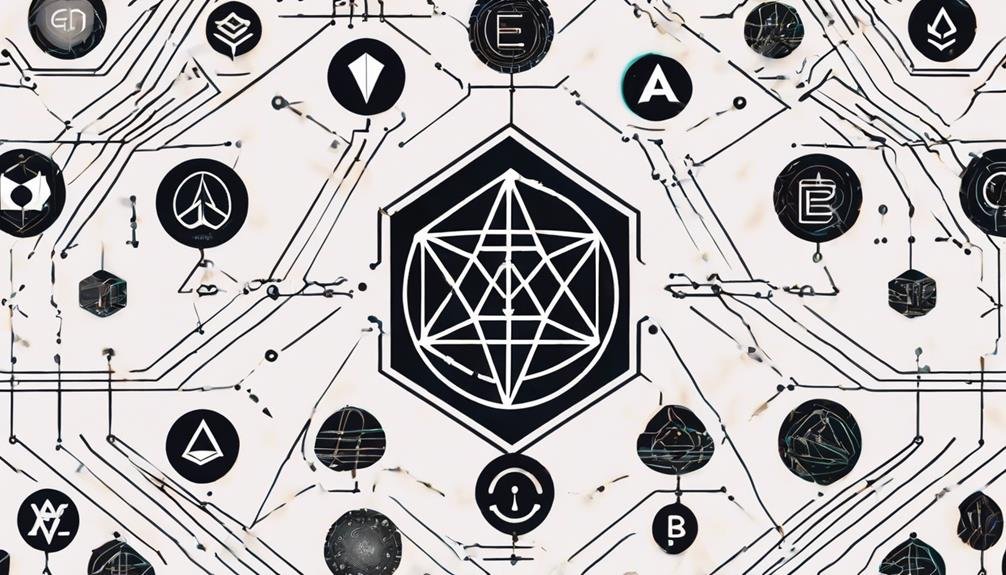Table of Contents
Brief Overview of Best Smart Contracts Platforms For Defi
- Ethereum pioneers smart contracts in DeFi with a vast ecosystem and over $100 billion in assets locked.
- Binance Smart Chain offers scalability and lower fees, becoming the second-largest DeFi ecosystem by TVL.
- Solana excels in rapid transaction processing with up to 65,000 transactions per second and low fees.
- Ethereum’s secure smart contract capabilities remain foundational in DeFi for various financial activities.
- BSC’s efficient consensus mechanism and fast block times enhance its efficiency for DeFi applications.
Ethereum, Binance Smart Chain, and Solana are leading platforms for smart contracts in DeFi. Ethereum, with its pioneering technology, supports a vast ecosystem with over $100 billion in assets. Binance Smart Chain offers speed, low fees, and high TVL, making it a top choice. Solana excels in rapid transaction processing, handling 65,000 transactions per second, with unique consensus mechanisms and cost-effective DeFi projects. Each platform brings distinct advantages, shaping the future of decentralized finance. Explore further to uncover how these platforms are transforming the DeFi landscape with innovative smart contract solutions.
Ethereum Smart Contracts in DeFi
Powering a significant portion of decentralized applications within the decentralized finance (DeFi) sector, Ethereum’s smart contract platform serves as the backbone for a multitude of financial activities in the digital domain. With over $100 billion worth of assets locked in DeFi protocols operating on Ethereum’s smart contract infrastructure, the platform has become a cornerstone of the DeFi ecosystem. Ethereum’s native token, ETH, plays an essential role in facilitating transactions and covering fees within this decentralized financial landscape.
Smart contracts on Ethereum enable a wide array of automated DeFi activities, including lending, trading, and yield farming. The platform’s robust and secure smart contract capabilities have solidified its position as the foundation of the DeFi space, offering a reliable infrastructure for users to engage in various financial transactions and activities seamlessly. As the pioneer in smart contract technology for DeFi, Ethereum continues to drive innovation and growth within the decentralized finance sector.
Binance Smart Chain for DeFi

Utilizing its fast and scalable platform, Binance Smart Chain (BSC) has emerged as a prominent player in the decentralized finance (DeFi) sector, offering users enhanced efficiency and cost-effectiveness compared to other blockchain networks. BSC’s compatibility with the Ethereum Virtual Machine (EVM) provides developers with a familiar environment, facilitating the migration of projects to BSC.
With lower transaction fees and fast block times, BSC presents a compelling option for DeFi applications seeking to reduce costs and increase transaction speeds. Operating as a layer-2 blockchain with a distinct consensus mechanism, BSC enhances its efficiency for DeFi use cases. Currently, BSC boasts the second-largest DeFi ecosystem by Total Value Locked (TVL) in the industry, indicating its growing popularity and adoption within the DeFi community.
Overall, Binance Smart Chain’s EVM compatibility, scalability, lower fees, and efficient consensus mechanism position it as a strong contender in the DeFi space, attracting both developers and users looking for a reliable platform for their decentralized financial activities.
Solanas Impact on DeFi

Solana’s rapid transaction processing capabilities and innovative consensus mechanisms have significantly impacted the decentralized finance (DeFi) landscape. With its high-speed blockchain capable of handling up to 65,000 transactions per second, Solana provides a platform that prioritizes scalability and efficient transaction processing, which is crucial for the demanding nature of DeFi applications.
By integrating Proof of History (PoH) and Proof of Stake (PoS) consensus mechanisms, Solana guarantees fast and secure transactions, enhancing the overall user experience within the DeFi ecosystem. Additionally, Solana’s Sealevel technology enables parallel execution of smart contracts, further optimizing performance in DeFi protocols. One of Solana’s notable advantages is its low transaction fees, making it a cost-effective choice for DeFi projects compared to other platforms.
Consequently, Solana has become a preferred blockchain network for DeFi projects seeking consistent high performance, throughput, and reliability.
Frequently Asked Questions
What Is the Best Platform for Smart Contracts?
In evaluating the finest platform for smart contracts, factors such as Ethereum’s dominance, Binance integration, Polkadot’s potential, Solana’s scalability, Avalanche’s adoption, Cardano’s compatibility, Algorand’s innovation, Tezos’ security, Fantom’s speed, and Harmony’s interoperability play critical roles in determining the best choice.
What Is the Best Platform for Defi?
When evaluating the best platform for DeFi, factors like scalability, security, speed, interoperability, and technology must be considered. Ethereum, Binance Smart Chain, Avalanche, Solana, Cardano, Tezos, Algorand, Tron, Cosmos, and Fantom each offer unique features catering to diverse DeFi needs.
Does Defi Use Smart Contracts?
Smart contracts are a cornerstone of DeFi, automating financial operations without intermediaries. They guarantee transparency, security, and efficiency, enabling innovative financial services. Compliance, risk management, and governance are better managed through tokenization and interoperability, enhancing the decentralized financial ecosystem.
What Is a Decentralized Platform for Smart Contracts?
A decentralized platform for smart contracts operates autonomously, leveraging blockchain technology for tamper-proof execution. It enables the automated execution of programmable agreements, decentralized applications, and trustless transactions. Incorporating decentralized governance, token standards, and immutable code guarantees interoperable protocols and cross-chain compatibility.
Conclusion
To sum up, Ethereum, Binance Smart Chain, and Solana are three of the top platforms for smart contracts in DeFi. While each platform has its strengths and weaknesses, they all play a vital role in the decentralized finance ecosystem. Despite potential concerns about scalability and security, these platforms continue to innovate and improve, driving the growth and adoption of DeFi applications. Smart contracts are here to stay, revolutionizing the way we interact with financial services.




